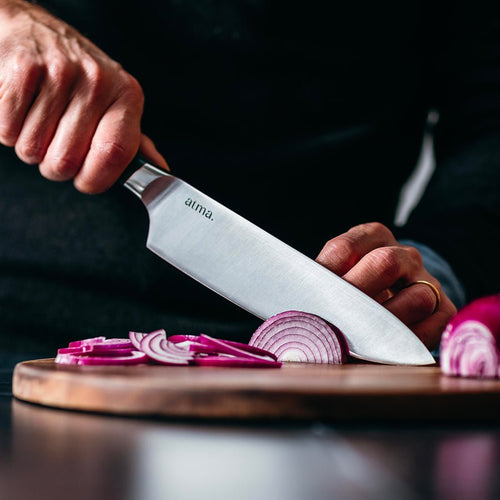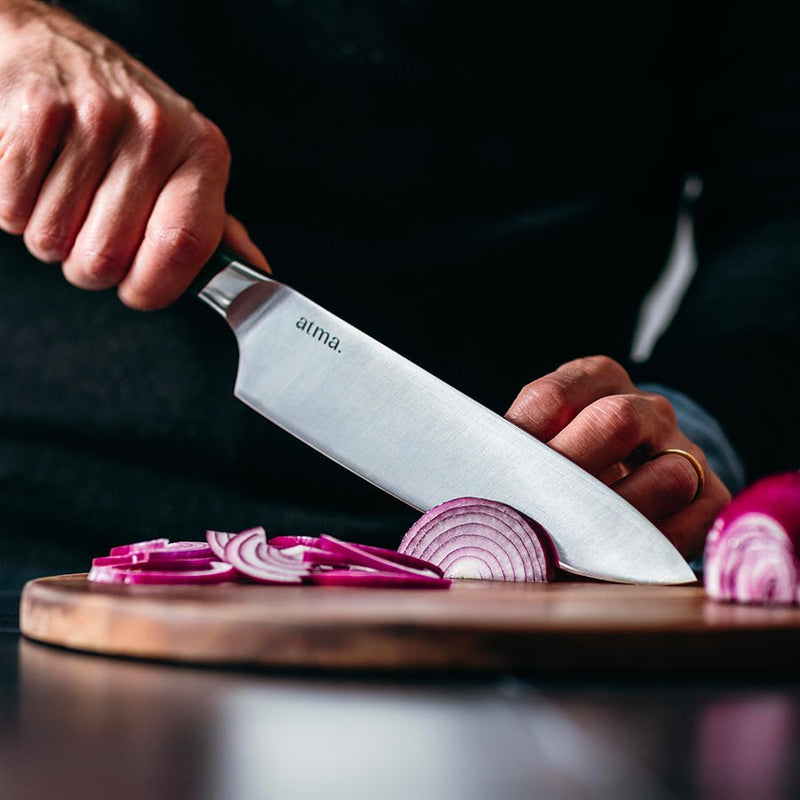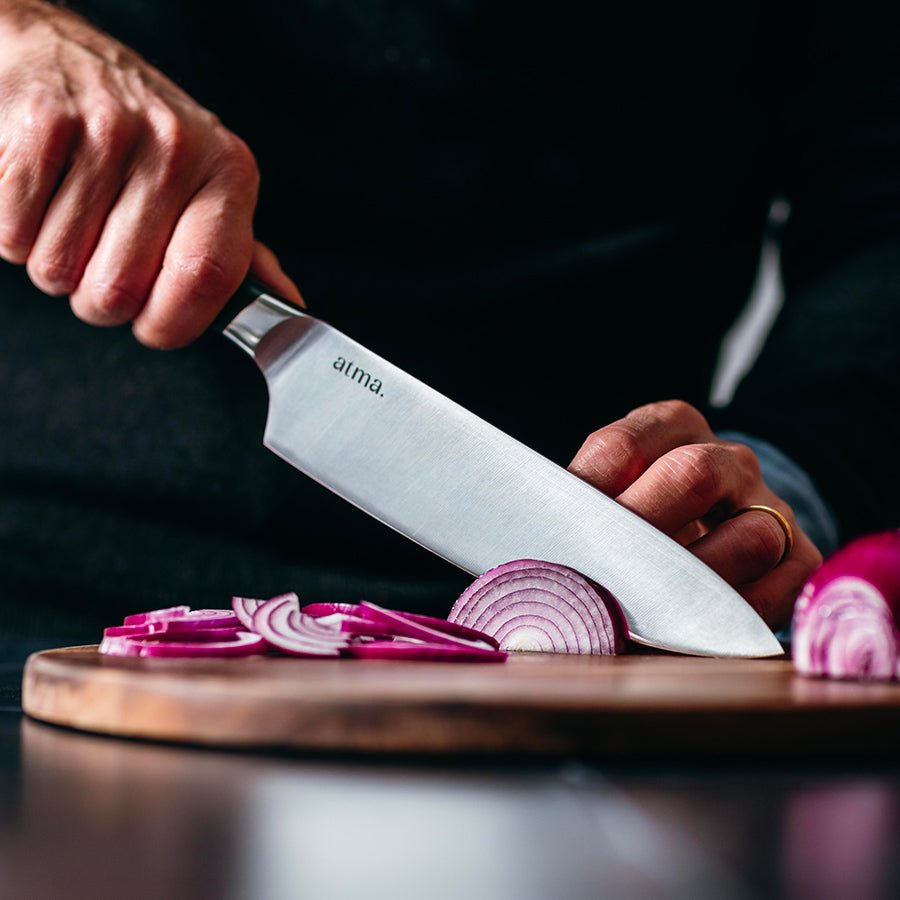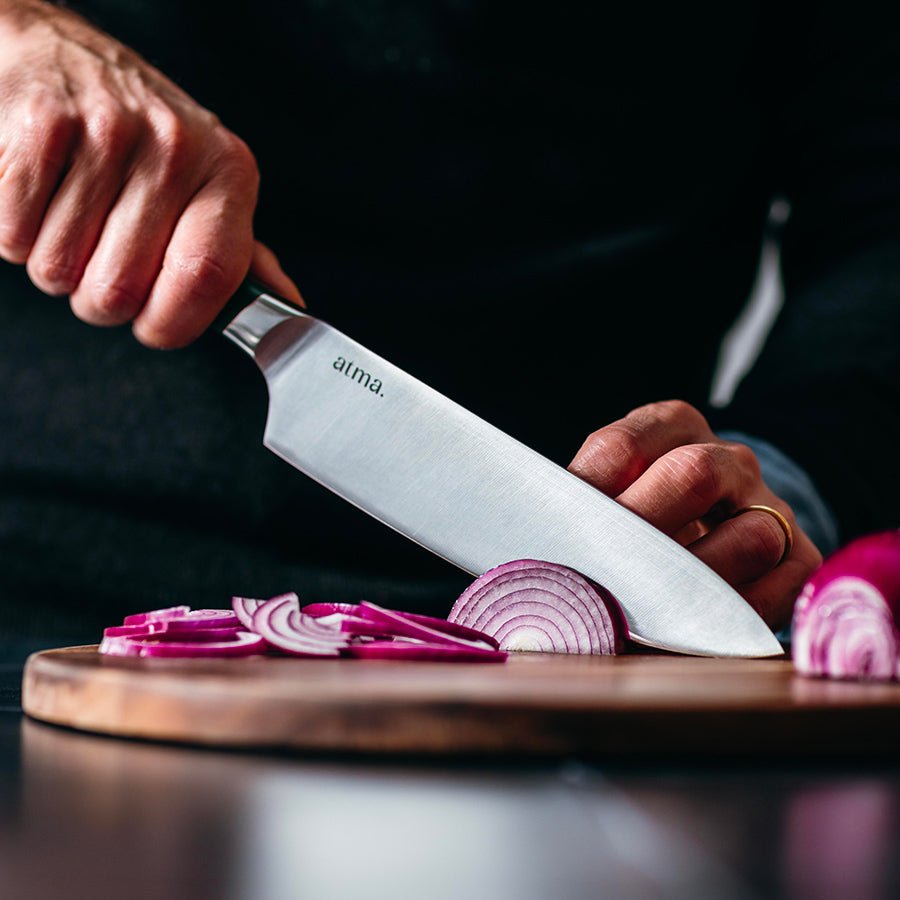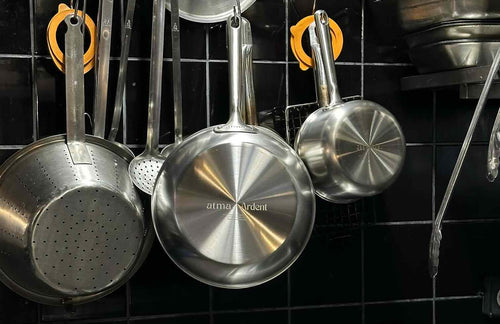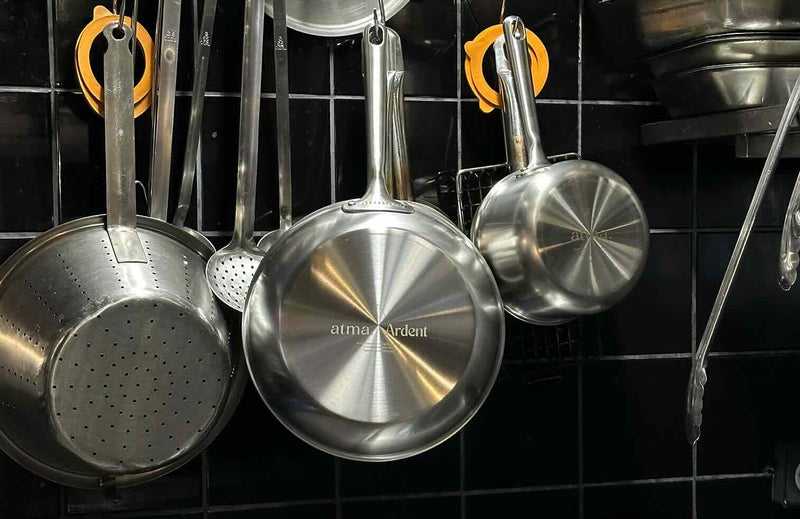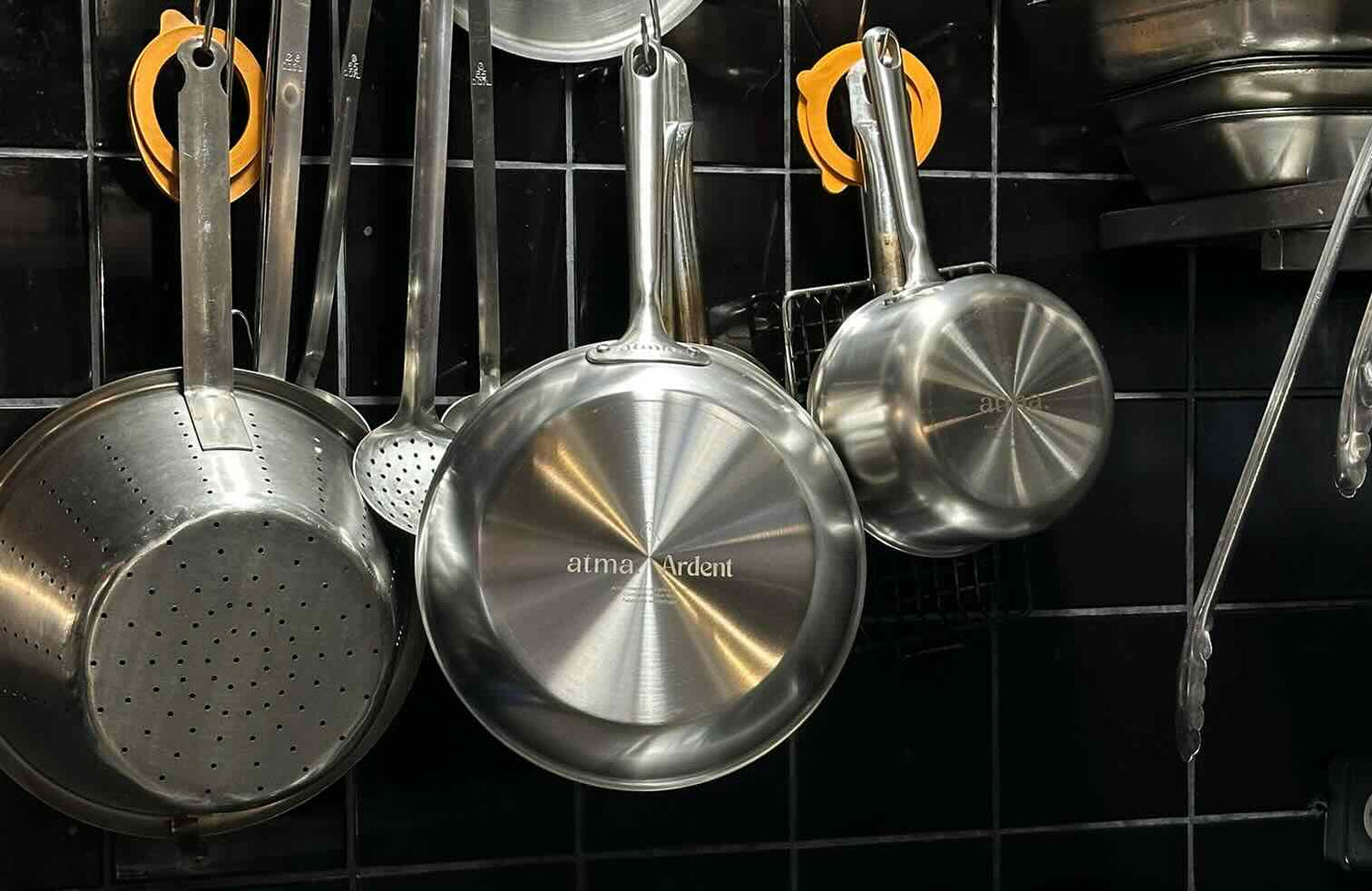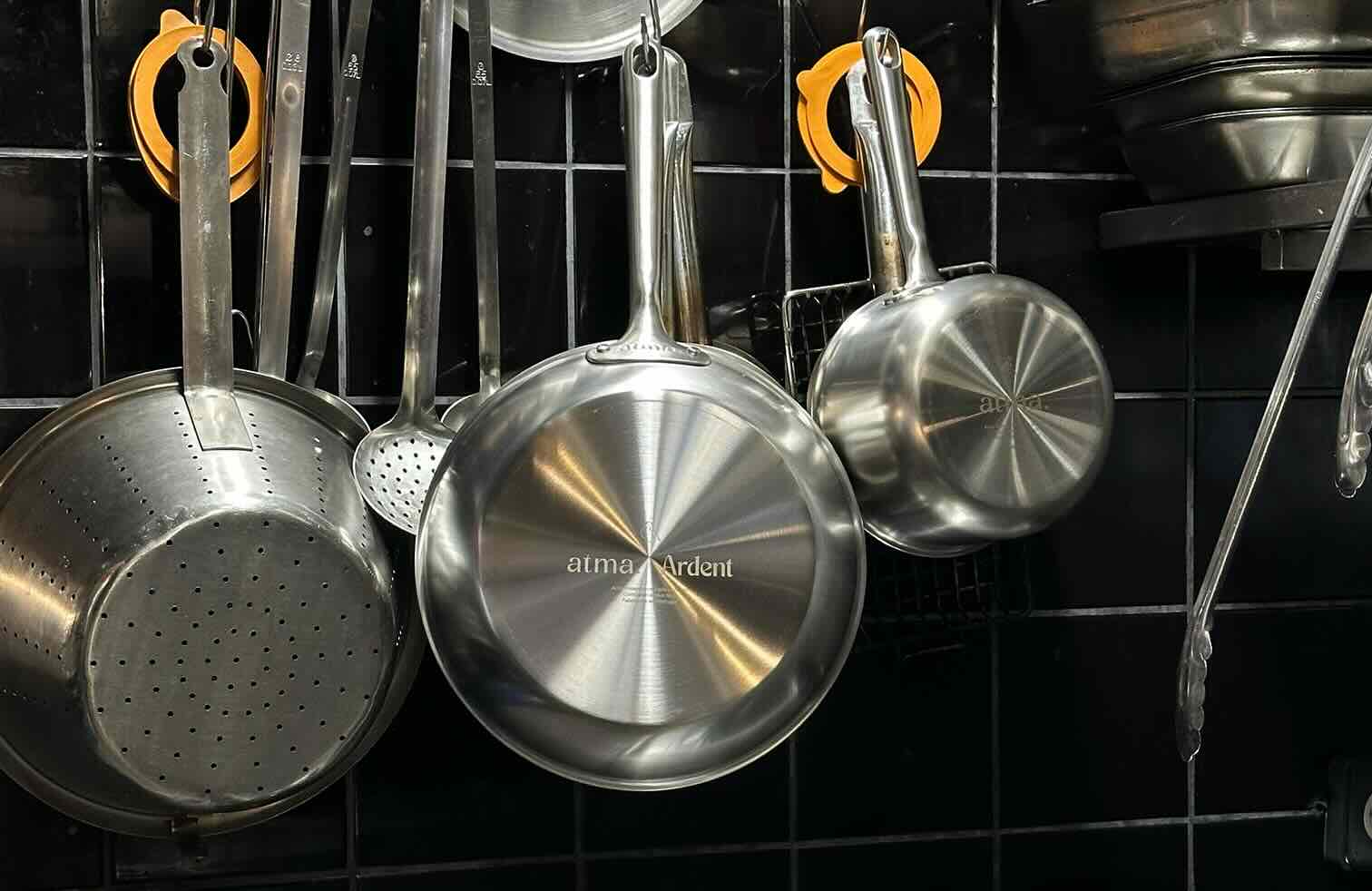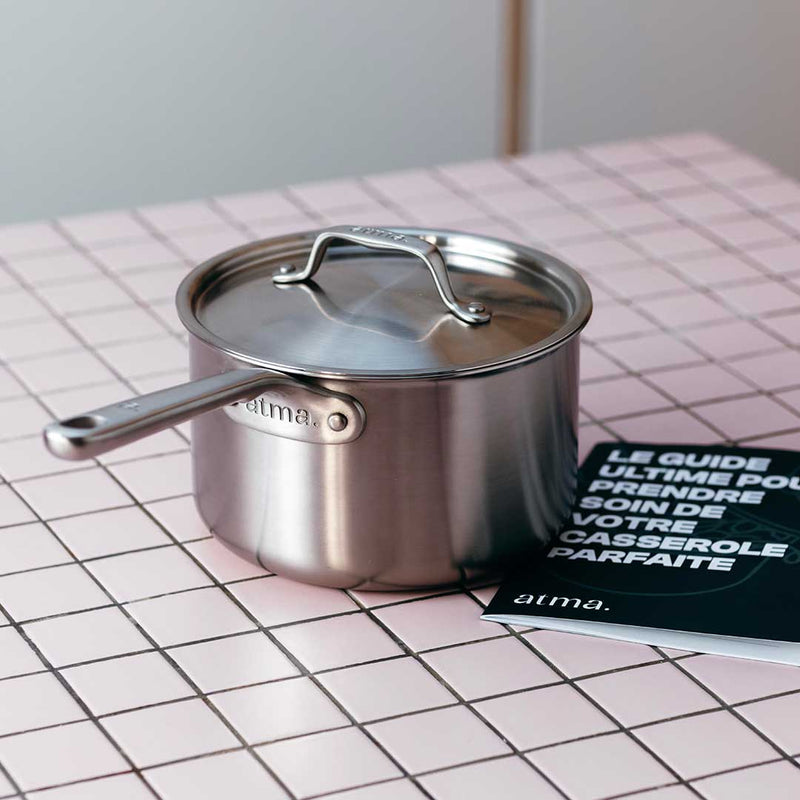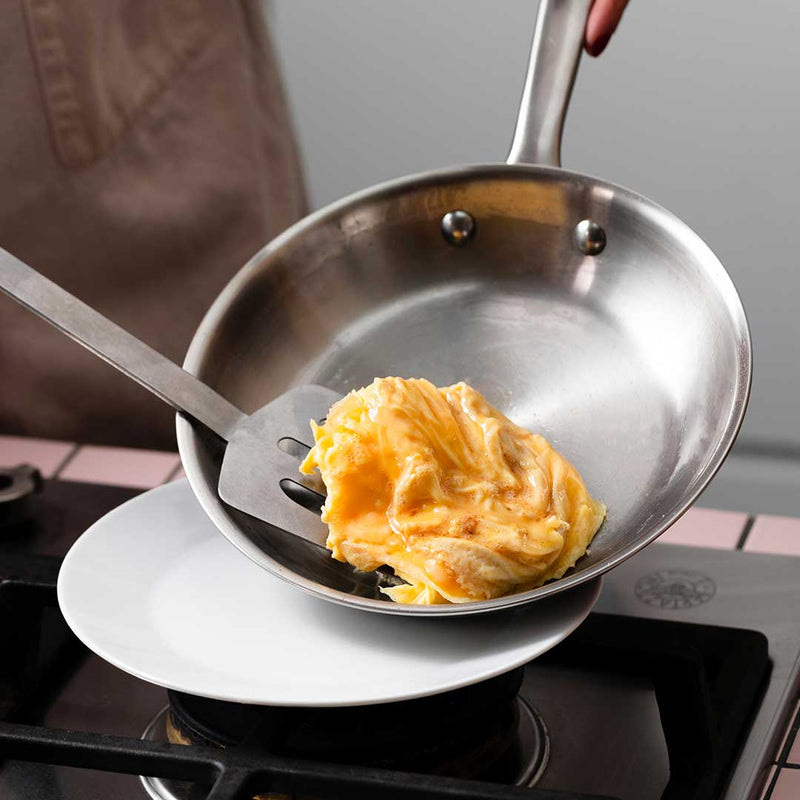Decryption: What is the Rockwell index used for on your kitchen knives?








The Rockwhat index? We grant you, Rockwell sounds more like a Manhattan building or a super badass actor.But again, we're talking about kitchen knives and particularly the hardness of the blade, an essential criterion to consider when purchasing one.
The Rockwell index is a very practical tool for accurately determining the hardness of your knife. So that you know how to use it wisely, we'll decipher it for you! Let's go!
Definition of the Rockwell Scale
Before analyzing and interpreting the Rockwell index, we must first define it.
As mentioned above, the Rockwell index is a tool that allows us to precisely define the hardness of a blade. It is now the standard method for measuring the strength of a kitchen knife blade. It is calculated by measuring the depth of the indentation left by a heavy load on the blade's metal.
What is the purpose of such an index? This allows knifemakers to measure, control, and balance three key factors in creating a quality product:
- Hardness
- Flexibility
- Toughness
Each kitchen knife will have its own specific characteristics and therefore a different Rockwell index, depending on whether it is a chef's knife, a paring knife, or a peeler, for example.
How is the Rockwell rating measured?
The Rockwell rating is based on a simple test: the diamond test or Rockwell hardness tests. It determines the strength of a knife based on the penetration depth of a diamond ball into the blade steel.
To properly perform such a test, the blade metal must be heat-treated and have a completely flat surface. If these conditions are not met, the test results may be inaccurate.
Following this, the blade is struck with a diamond-tipped cone to create a notch, the depth of which is then measured using a prism with a given force. The results are then used to create a scale that will compare the results on the different metals tested, thus determining the strength of these metals comparatively.
What do Rockwell ratings correspond to?
Rockwell testing calculates the Rockwell rating of a blade from 30 available Rockwell rating scales. Rockwell ratings are therefore most often represented by a scale, as Rockwell testing only measures the hardness of the material's surface, even though the inside of the knife may be more robust. Therefore, manufacturers prefer to provide a numerical scale for their knives, which allows for a margin of error in the test results.
But what do these scales actually mean?
Attributes of knives with a high score:
If the Rockwell tests give your knife a high score, it means that your kitchen knife is made of a hard steel. This will help it retain its sharpness longer.
However, if the blade is too hard, it will be more likely to break. This is particularly the case for knives whose hardness score, calculated in RC, is higher than 65 RC. It should also be noted that such knives, whose steel is harder, will require more time and effort to sharpen. It is therefore necessary to choose a knife whose score does not exceed 60 RC.
Attributes of knives with a low score:
Conversely, a lower hardness score below 50 RC means that the steel is too soft, is rarely used or not at all by major cutlery brands, and its edge will last less long than knives with higher scores.
What is the ideal hardness rating for my chef's knife?
The ideal hardness rating for steel seems to be around 58HRC. This type of steel maintains its blades' sharpness over time, and this hardness makes them easy to sharpen. The Ultimate Chef's Knifehas a Rockwell rating of 58 RC because we wanted to give it a razor-sharp edge while ensuring that you won't have any trouble resharpening it.
Discover our best sellers
By Romain De Bona








































